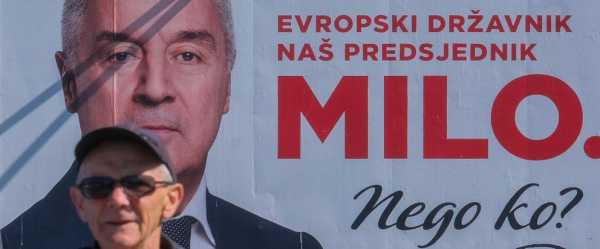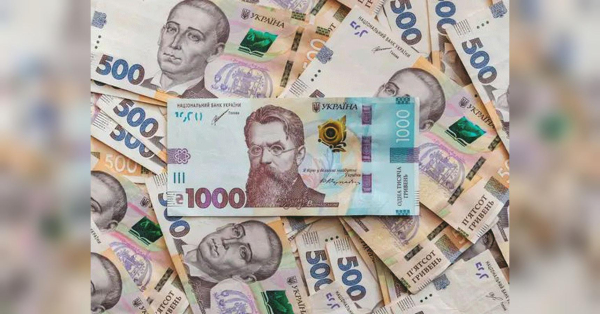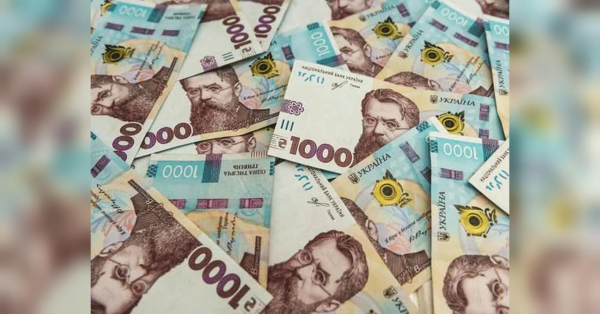
PODGORICA, Montenegro — Voters in small Montenegro go to the polls this weekend to choose their next president in a runoff between pro-Western incumbent Milo Djukanovic and Jakov Milatovic, a newcomer supported by the shaky governing coalition with links to neighboring Serbia.
Observers say Milatovic, a politician on the rise, stands a better chance than Djukanovic, who is credited with leading the Balkan nation to independence from Serbia and into NATO but whose long presence in Montenegrin politics has fueled a desire for change.
The ballot is being held after none of the candidates won enough support in the first round of voting two weeks ago. Here is a look at the main facts on Montenegro, Sunday's election and the two candidates:
MONTENEGRO, IN A NUTSHELL
Montenegro is a small nation of some 620,000 people, located in Europe's Balkan peninsula, by the Adriatic Sea. The country became independent after a referendum in 2006 following decades in a union with Serbia, but remains divided over relations with its much larger neighbor.
Politically, Montenegro is a member of NATO and now seeking to join the European Union. That effort, however, has been stalled because of political turmoil after a change of government in 2020. This has alarmed the West as Montenegro is considered a key ally in efforts to counter Russian influence and maintain stability in the Balkans.
Montenegro boasts stunning natural beauty in both its mountains and the sandy coastline.
WHY IS THIS ELECTION IMPORTANT?
Although the presidency in Montenegro is a more or less a ceremonial post, the vote is important because it could signal a political reshuffle ahead of early parliamentary election on June 11. Whichever candidate wins is expected to give an important boost to his party's chances in the June vote.
Djukanovic has insisted that voters also chose whether Montenegro will advance toward EU integration or will continue to “stumble,” as has been the case in the past 2 1/2 years since his Democratic Party of Socialists was ousted with the help of the Serbian Orthodox Church in Montenegro.
Milatovic, who served in the first post-DPS government after three decades, says Djukanovic and his party devastated Montenegro during their rule, allowing crime and corruption to engulf society.
WHO ARE THE CANDIDATES?
MILO DJUKANOVIC: At the age of 61, Djukanovic is possibly Europe's longest-serving politician who first became prime minister at 29 and has stayed in power for the past 32 years. Djukanovic has been the prime minister and president on multiple occasions, serving practically unchallenged until now.
Djukanovic and his DPS kept Montenegro stable while wars raged in the rest of the Balkans during the 1990s. He turned away from Serbia and pushed for independence in 2006, and later defied Slavic ally Russia in 2017 to take his nation into NATO.
Nowadays, Djukanovic says his mission is not over because Montenegro is again under threat from neighboring Serbia's expansionist policies and Russia's influence. Djukanovic has accused his opponent Milatovic and the current government of “brutal populism” in leading the country.
JAKOV MILATOVIC: Young and successful — the 36-year-old economist earned his education in Britain and the United States — Milatovic has appealed to voters disillusioned with established politicians like Djukanovic. Milatovic already has declared Djukanovic's era over, campaigning on the need for change and promising a better future.
Milatovic's Europe Now emerged after the first government that resulted from the 2020 parliamentary elections collapsed. As the economy minister, Milatovic gained popular support by increasing salaries but critics say this was done at the cost of the already depleted health system and not based on real economic improvements.
If Milatovic wins his Europe Now movement could find itself in a position to dominate the next government that will be formed after the June 11 vote. Milatovic says he is pro-EU, while opponents point to his close ties to the Serbian Orthodox Church and groups that want the country to revive its historically close relations with Serbia.
HOW WILL THE VOTING UNFOLD?
Polls open from 0500GMT until 1800GMT. Montenegro has some 540,000 eligible voters and turnout in the country is usually relatively high. First projections of the final tally will be given about an hour after polls close by usually reliable local monitoring agencies. Official results are expected later in the evening or on Monday.
Sourse: abcnews.go.com






